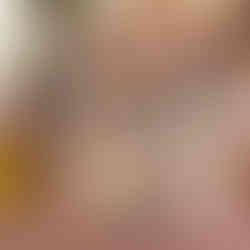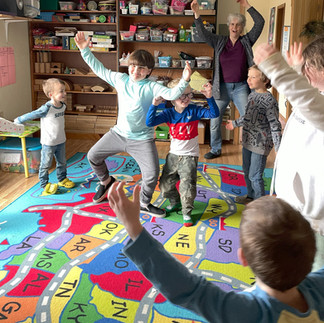Taking Care of the Earth
- Phoebe Moulthrop
- Apr 14, 2024
- 2 min read
We're learning this month about Earth Day, weather, and climate change. We are doing our best to ground our learning in the world around us.
If we're learning about weather and the clouds, let's look at the clouds in our sky each time we go outside. What clouds seem to be around when it raining? How high up are they? What do they look like? What do you notice about the puddles? How do they change from day to day?
If we know that kids helped to make Earth Day a big deal, what are some projects we can do right here? We planted zinnia seeds this week to bring to the pollinator garden on Baker Avenue, a yearly pilgrimage each June. We also sent zinnias home so kids can bring butterflies, hummingbirds, and other pollinators to their houses. The kids helped generate a list of other ways we can take care of the earth.
Rose's PK and K Class
We made weather charts with spinning arrows to track the weather each day.
We used water drops to blend colors on coffee filters.
We counted the letters in our names and made block towers with that number. Then we compared the heights of our towers in a “class name city”.
On a day that everyone seemed to have extra wiggles, we used scarves and danced to songs that expressed different moods.
We used strings and paint to make abstract patterns on paper. These will become butterflies to bring home next week.
Tracy's 1st - 4th Class
In math, we have been modeling different arrays, reviewing factors and thinking about dividing and multiplying. The second-grade class partitioned lots of different rectangles into squares - this tiling is the basis for multiplying (and understanding area). The third-grade class is placing fractions on number lines, modeling them, and comparing them. The fourth graders are solving problems with fractions including multiplying, adding, subtracting, and dividing.
In literacy, we finished up our co-written Alex the Pineapple stories. We reviewed parts of speech, particularly nouns, verbs, and adjectives. We also worked to identify sentence fragments and figure out how to make them complete sentences. Everyone worked to find the words that make sentences more interesting. How is sped different than went? How does the fish change when we add slimy? Whenever we work on these skills in our writing times, we use our reading groups to notice how professional writers do these same things. What are the sentences that really "pop" as we're reading? We take careful note so that we can work to make our writing as memorable.










































Comments